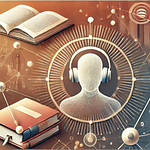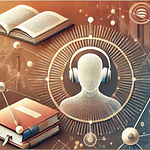Podcast Notes Premium Collection: Huberman and Sleep
Intro to Sleep
Sleep cycles & Architecture: non-REM and REM play for brain domination throughout the night in 90-minute cycles – this is the standard architecture of sleep
Ratio of non-REM and REM throughout the night: the first half of the night is dominated by non-REM deep sleep; the second half of our sleep is dominated by REM sleep
Not everyone’s sleep cycles are 90 minutes: sleep architecture is fairly consistent within a person, but can be different across people
Non-REM Sleep: Non-REM deep sleep is divided into four stages, increasing in the depth of sleep: stages 1 and 2 are light stages of non-REM deep sleep; stages 3 and 4 are deep stages of non-REM deep sleep
In stages 1 and 2: the heart rate begins to drop, and brain wave activity slows down
In stages 3 and 4: the heart rate is low, cells in the cortex fire together then go silent
During non-REM deep sleep, we get autonomic restoration and regulation of heart rate and blood pressure
Hypnogogic Jerks: during stage 1 you experience mini dreams s you’re starting to drift off and can almost wake yourself up in this stage – sometimes you experience a jerk in your body as a result of loss of proprioceptive feedback
…
Quantity, Quality, Regularity, and Timing (QQRT): The macros of sleep
Quantity: the average adult needs between 7-9 hours of sleep per night – but the reality is more complex
Quantity alone doesn’t tell the full story
…
Carbs, Caffeine and THC
Carbs in AM vs. PM: research does seem to support that your body is better able to metabolize carbohydrates in the morning versus evening if you’re concerned about your blood sugar and metabolic health
Eating Before Bed: In gener…
Sleep Supplements
Magnesium Threonate or Glycinate, 145mg, 30-60 minutes before sleep
Magnesium chloride can be effective for bioavailability by way of muscle relaxation
Apigenin: 50mg, 30-60 minutes before sleep
Theanine: 100-400mg, 30-60 minutes before sleep (Do NOT take Theanine if you are prone to night terrors or sleepwalking)
Glycine: 1.5-2gPhosphatidylserine will dampen cortisol response
Check out the full Momentous Huberman sleep stack & use promo code PODCASTNOTES for 15% off at checkout!
Sleep Tips
1. Do Nothing! If you are struggling with sleep and had a bad night of sleep, do not sleep in later, do not go to bed earlier, do not increase caffeine intake, do not compensate with a nap
2. Time rescheduling/sleep restriction therapy: if you are spending too much time in bed, your brain is not efficient; it’s like being in the gym for hours a day but spending most of the time scrolling on your phone – you’re not really getting a good workout like if you know you only have 45 minutes to workout
3. Don’t underestimate the importance of a winddown routine: whatever you enjoy for relaxation, build it into your regimen to help you decelerate
4. Do NOT count sheep, instead take yourself on a mental walk: counting sheep actually makes you stay awake longer; instead, get your mind off itself by going through a rudimentary walk with hyper-detail – imagine putting your shoes on, opening the door, crossing the street, imagine the signs you see, look at the flowers, etc.
5. Remove …
Monophasic sleep: Single bout of sleep in 24 hour period
Biphasic sleep: Two bouts of sleep in 24 hour period
Polyphasic sleep: …
Napping
Naps are a Double-Edged Sword: If you struggle with sleep at night, do not nap during the day in order to build up sleepiness and hopefully sleep at night
Cons of Napping: Naps remove sleep pressure (adenosine) so if you struggle with sleep, you are setting yourself up for worse sleep because you’ve removed some of the sleepiness you need
Pros of Napping: If napping does not disrupt your sleep and leaves you feeling better, go ahead and nap but be cautious of napping too late which can disrupt sleep
Are Naps Right F…
Super Charged Nap: Swig espresso right before napping + nap 20 minutes + cold water to hands and face upon waking + immediate daylight 5-10 minutes outside
3 Ways Sleep is Essential for Learning:
1: We need sleep before learning to start the initial imprint and laying the tracks; sleep before learning is critical
2: We also need sleep after learning to cement the information in our brain
3: We need sleep to integrate the new information with previously learned information we have stored
Exactly How Much an All-Nighter Impacts Memory: Pulling an all-nighter leads to deficits of up to 40% in making new memories
…
Symptoms of REM Sleep Deprivation: Paranoia, hallucination, aspects of psychosis (with enough time)
Bad Sleep, And Then: When sleep deprived, you’re excessively reactive and hypersensitive, particularly to reward-based activities – dopamine circuits are overactive when you are underslept
Sleep and Addiction: A lack of sleep is associated with addiction potential AND relapse if trying to abstain
REM Sleep Killers: Alcohol, THC
One Possible Mechanism for PTSD: The brain is trying to process the traumatic experience but fails, so the brain tries again the next night, and the next – until …
Brain Features of REM:
(1) Electrical brain wave activity in the cortex is similar to that when you are awake;
(2) There are unique pulses from the brain stem ultimately to the occipital cortex (linked to rapid eye movements);
(3) Motor regions, visual regions, memory-related structures, and emotional-related structures of the brain all light up
(4) The dorsolateral prefrontal cortex (responsible for inhibition and planning) activity is suppressed during REM
Functions of REM sleep: (1) Creativity; (2) Emotional & mental wellness – REM sleep is overnight therapy
…
(1) Consistently rehearse the notion that you will remember your dreams and you will take control of your dreams – if you do this enough, the probability you will induce lucid dreams is high
(2) Rehearse something (like flicking a light switch on and off) over and over; Then, when this appears in your dream you can take control










